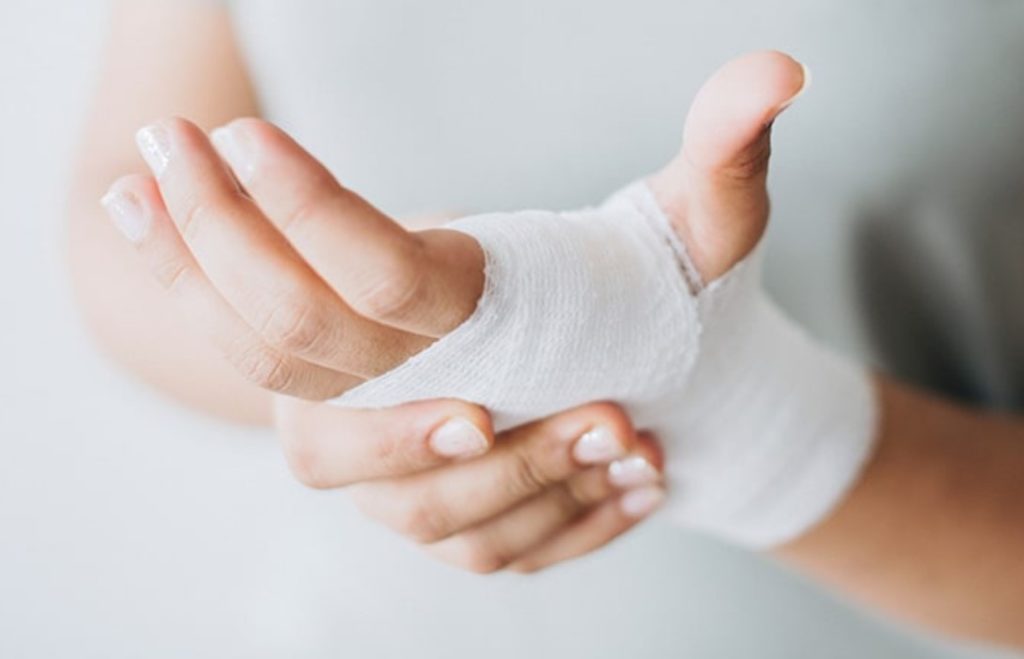One of the most common ignored injury is the injury we know as slip and fall. In this article, we are going to briefly cover the basics of slip and fall cases. Specifically, we will discuss what is slip and fall, who could be responsible for it, what are the claims you can file against them, and for the case of work-related injuries, we will discuss on which is better: a slip-and-fall claim or workers’ compensation.

Let’s begin by knowing what exactly a slip-and-fall case is.
Table of Contents
What is Slip and Fall?
Slip and fall injuries or incidents is how it exactly sounds: a person slips on a surface then he or she falls to it, probably causing some injury to his or her part.
The reason this is often ignored is that, if you will think about is, slip and fall is so common (and injuries often don’t happen when somebody slipped and fell). But what if you had an injury after slipping and felling over someone’s property? This is where the case is raised.
What is a Slip-and-Fall Claim?
Slip-and-fall claims are primarily a premises liability, meaning, it’s the landowner who is usually held responsible for this cases. This is because the landlord is presumed to be watchful over his (or her) property.
In the same of businesses renting on spaces, however, it’s the business renting on a certain that will be held responsible and not the landowner who is renting it. It’s because the business have control over the spaces of their premises. This explains why stores and other business premises, such as malls, have signs like “Caution: Wet Floor” when a particular floor is being mopped. The “wet floor” sign is also placed if a liquid spill happened in the floor.
Possible Liabilities of Landowners In A Slip-and-Fall Case
Typically, there are two claims you can against the landowner if you had a slip-and-fall case on their property. These claims are a) negligence and b) fault.
Negligence – you can claim that the owner is negligent and lacked in his or her exercise of due diligence which resulted in you slipping and falling on their property, resulting in some injury. For instance, if the mall manager did not placed a cautionary sign over their wet floor, that can mean negligence on their part.
Fault – you can also claim that it was the owner’s fault that caused your slip-and-fall injury. For instance, the owner carelessly threw a banana in his/her floor, which you accidentally stepped on and had you slipped.
Needless to say, they will contest on your claims, so be sure that you have solid evidences if you intend to file a slip-and-fall claim against them.
Workers’ Compensation vs. Slip-and-Fall Claim: Which is Better?
If your slip and fall injury is work-related, It raises a question: which claim should you file, workers’ comp or slip-and-fall claim?
We highly recommend workers’ compensation because it is relatively easier to file it compare to slip-and-fall claim. Why? Take note of the following points below.
- In workers’ comp, you don’t need to prove that the other party is responsible for your injury unlike in a slip-and-fall claim. This is called the no-fault system.
- In workers’ comp, you don’t even need a lawyer to claim it, though if your claim is contested, hiring a lawyer is highly recommended.
- Workers’ comp is less expensive than a slip-and-fall claim.
However, workers’ compensation have its own limitations. For one, the injury should be work-related. If the injury is not work-related, then clearly, you cannot claim for workers’ compensation.
It is important you calculate the pros and cons of each case, nevertheless. You can do this with the help of an experienced slip and fall attorney. He/she can give you legal advice on which claim is more beneficial on your situation. You may check LG Law Firm slip and fall attorney and book an appointment today. For more information, you may visit https://lglawoffices.com/workers-compensation/ontario-california-91764/.
If you need informative but simplified articles about law, check out Legal Facts.org. Their articles can help you learn the basics of law like bankruptcy and workers’ compensation.

